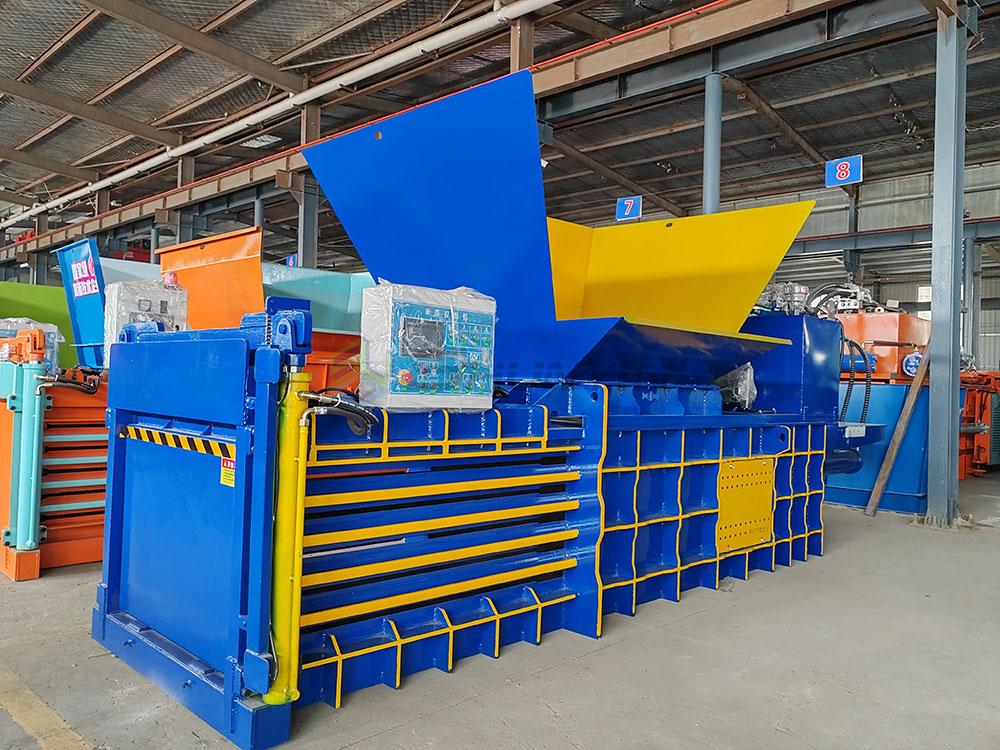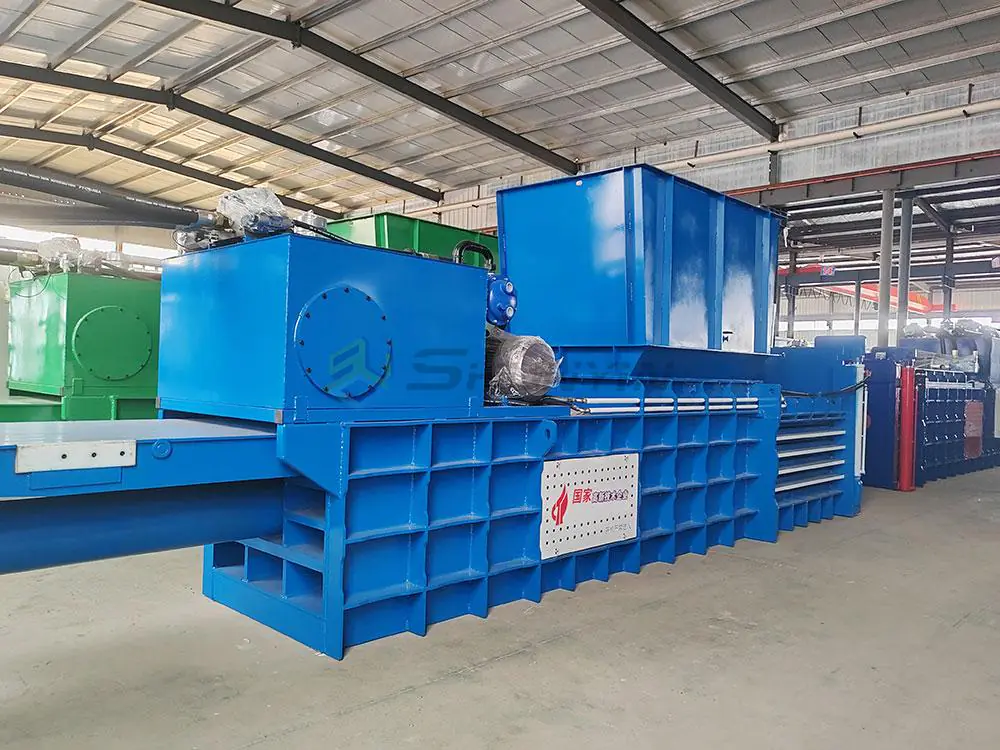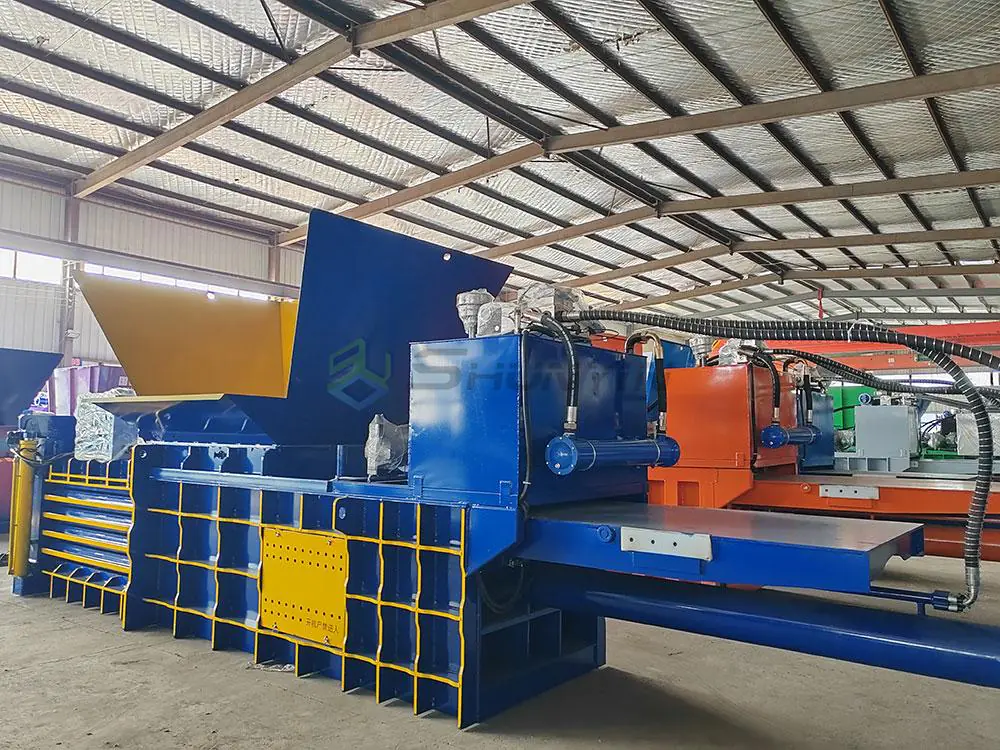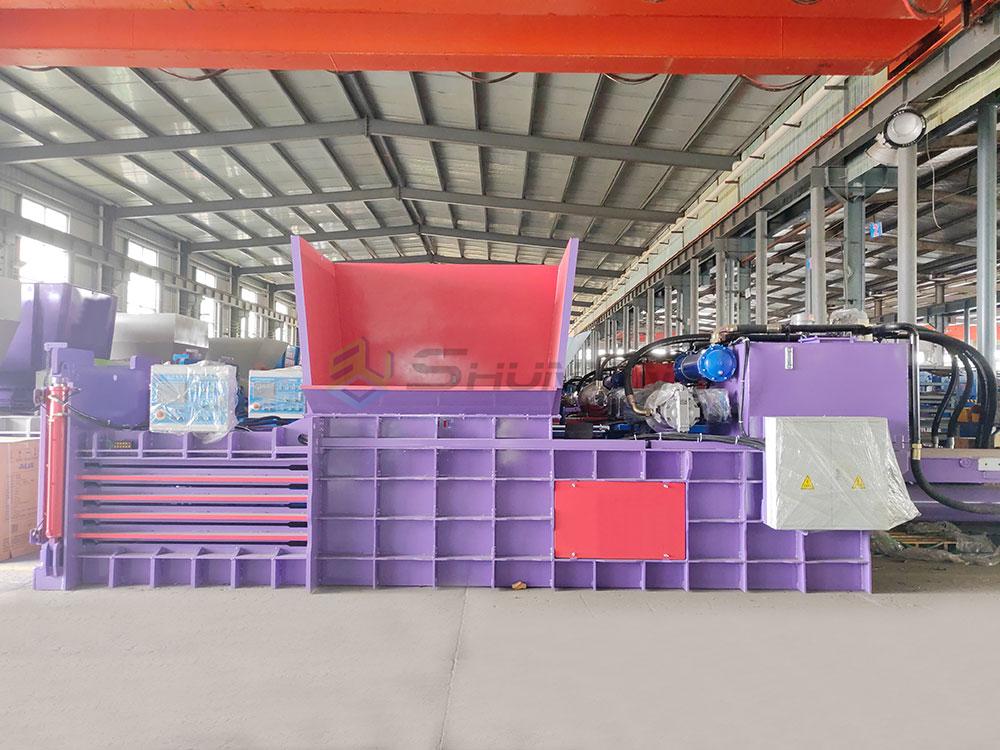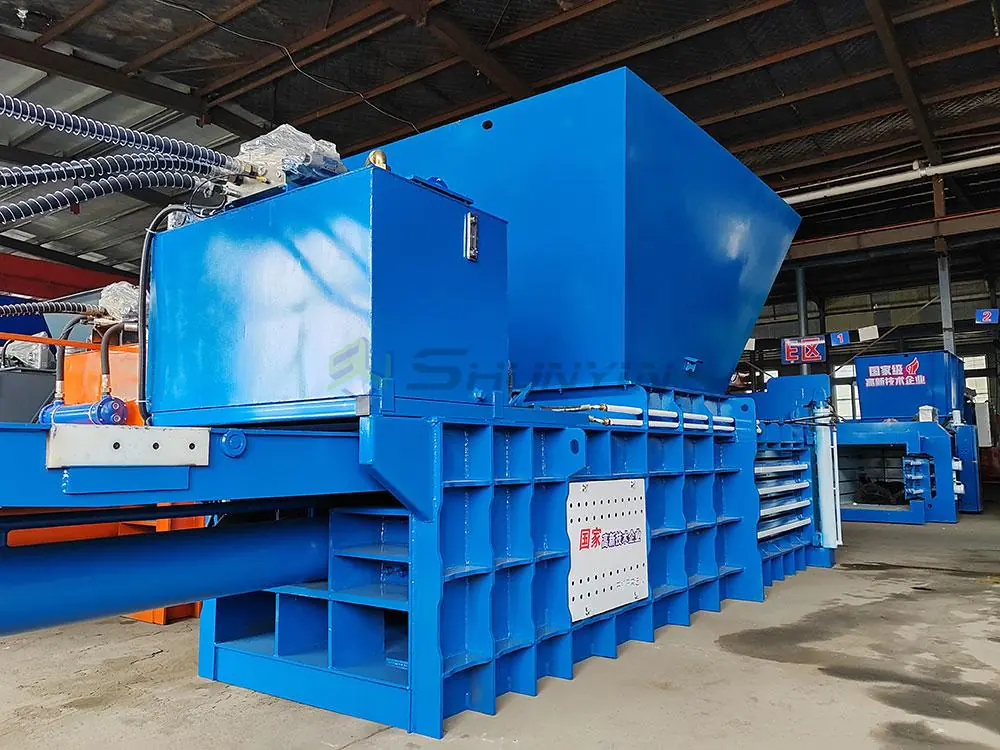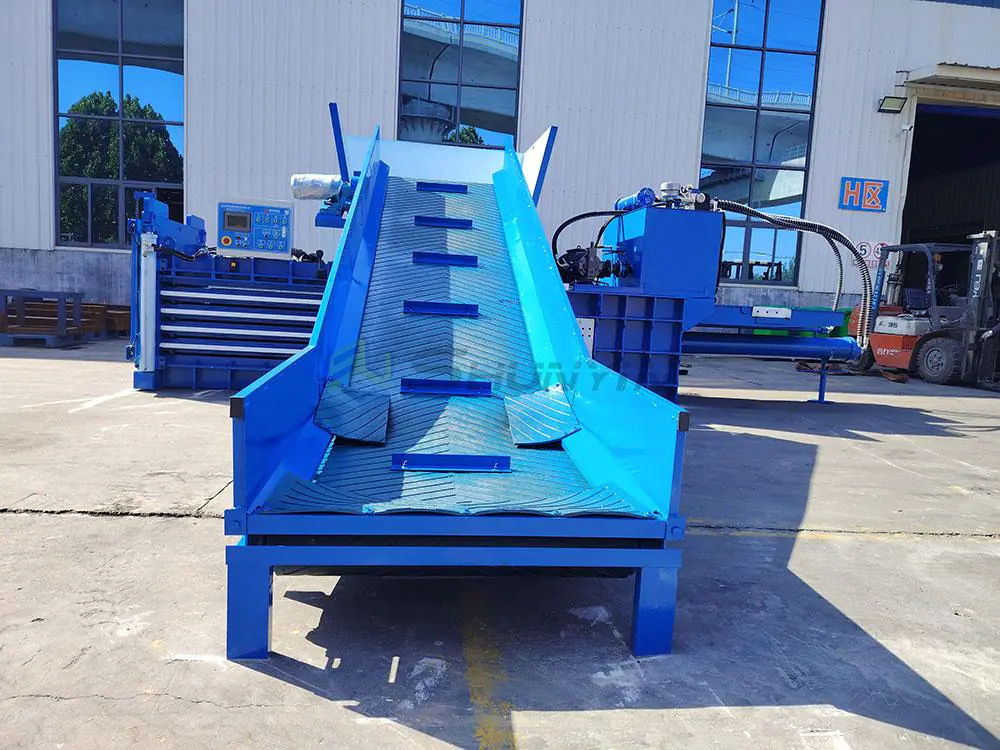
When Michigan’s AutoCore recycled 18,500 engine blocks last quarter using our 88-ton monster, their waste processing time dropped from 21 days to 47 hours – here’s how heavy-duty balers revolutionize industrial recycling.
A high-volume industrial baler processes 8-45 tons/hour using 16-250 tons of hydraulic force, creating condensed bales with 650-2100kg/m³ density. Our 55kW models feature auto-feed systems, dual compression chambers, and real-time density monitors that boost material value by 23-41% while halving energy consumption through optimized pump algorithms.
Four critical considerations separate profitable operations from equipment graveyards – here’s what our Japanese client’s disastrous first purchase taught us about smart baler selection.
What Is a High Density Baler?

Our Vietnamese client achieves 2.3t/m³ steel density – surpassing industry benchmarks by 17%:
Density vs Profitability Matrix
| Material | Target Density | Value Increase | Energy Cost |
|---|---|---|---|
| Aluminum | 750kg/m³ | 37%↑ | $0.28/kg |
| Copper | 1.1t/m³ | 14%↑ | $0.41/kg |
| Steel | 2.1t/m³ | 21%↑ | $0.19/kg |
| Plastic | 820kg/m³ | 29%↑ | $0.33/kg |
Key components enabling high density1:
- Multi-stage compression (3-5 cycles)
- 220bar hydraulic systems (+$7,200 option)
- Heat-assisted compression chambers (+15% density)
- Programmable dwell time control (0.5-4.5 seconds)
What Are the Different Types of Baler Machines?

Our Canadian client Lambert’s distribution center uses three configurations:
Baler Comparison Chart
| Type | Throughput | Force | Best For | Cost |
|---|---|---|---|---|
| Vertical | 2-8 t/h | 15-50t | Low-volume sites | $18k-75k |
| Horizontal | 12-40 t/h | 25-210t | Metal recyclers | $45k-220k |
| Auto-tie | 15-45 t/h | 30-180t | Cardboard mills | $68k-185k |
| Two-Ram | 8-28 t/h | 40-160t | Mixed waste | $92k-250k |
| Shear | 3-12 t/h | 80-250t | Structural steel | $135k-480k |
Selection criteria by material:
- Textiles: Horizontal balers (18t force minimum)
- E-Waste: Shear balers with cutters
- Foam: Vertical auto-tie models
What Is an Industrial Baler?

Our 110-ton model installed in Osaka processes 28 tons/day with these specs:
Heavy-Duty Baler Features
| Component | Specification | Benefit |
|---|---|---|
| Hydraulic Pump | 37kW 4-cylinder | 15% faster cycles |
| Cylinders | 250mm bore ×1.5m stroke | 280t max force |
| Control System | Touchscreen PLC | Preset 17 material profiles |
| Safety | Lazer curtain+emergency stops | OSHA/CE certified |
| Maintenance | Auto-lubrication ports | 92% uptime guarantee |
Operational metrics:
- Energy consumption: 0.85kWh/ton
- Noise level: 78dB at 1m
- Oil volume: 420 liters
- Cycle time: 53 seconds average
What Is the Difference Between a Bailer and a Baler?

After 47 support cases caused by this spelling confusion, we created this technical breakdown:
Functional Comparison
| Term | Definition | Applications | Force Level |
|---|---|---|---|
| Bailer | Manual water removal tool | Small boats, labs | N/A |
| Balers | Industrial compactors | Recycling, waste mgmt | 12-250t |
| Baler | Common misspelling | – | – |
| Bailer (incorrect) | – | – | – |
Key technical distinctions:
- Material handling capacity (kg vs tons)
- Hydraulic systems presence
- Automation levels
- Production certifications (ISO vs none)
- Safety mechanisms
Conclusion
Modern industrial balers deliver unmatched efficiency in waste-to-resource conversion. With 33 patents in compression technology, our machines ensure profitability. Get your capacity analysis – includes free scrap sample testing.
-
Learn about the critical relationship between material density and profitability in recycling processes, which can optimize your operations. ↩


